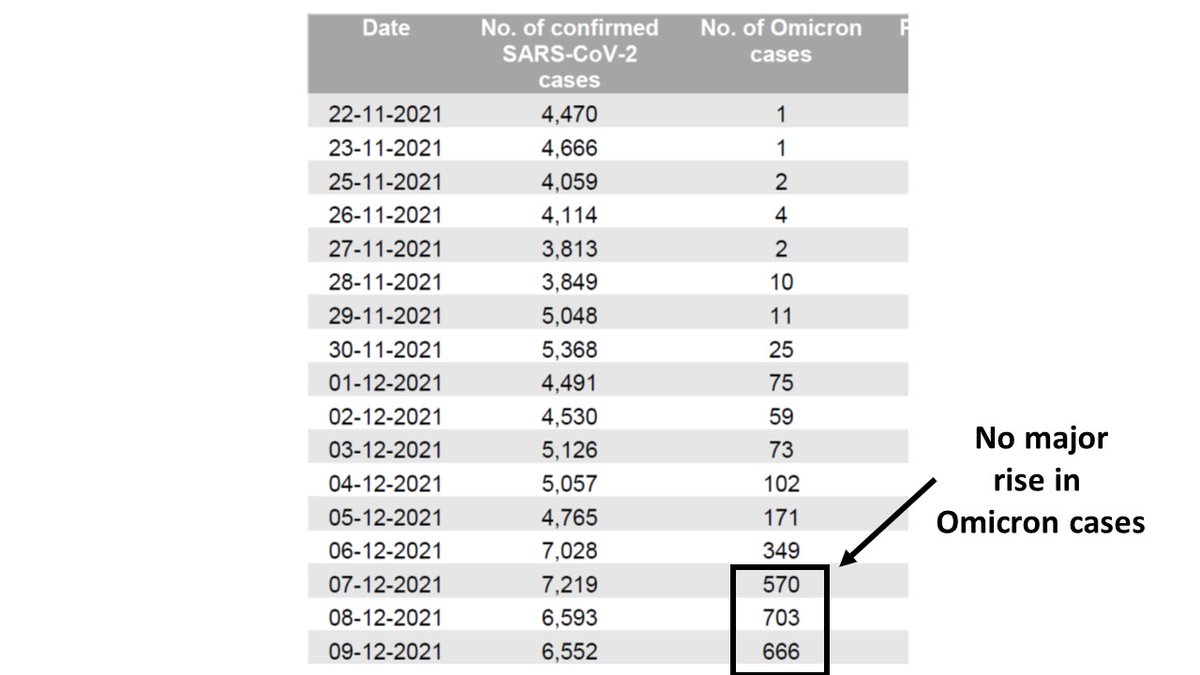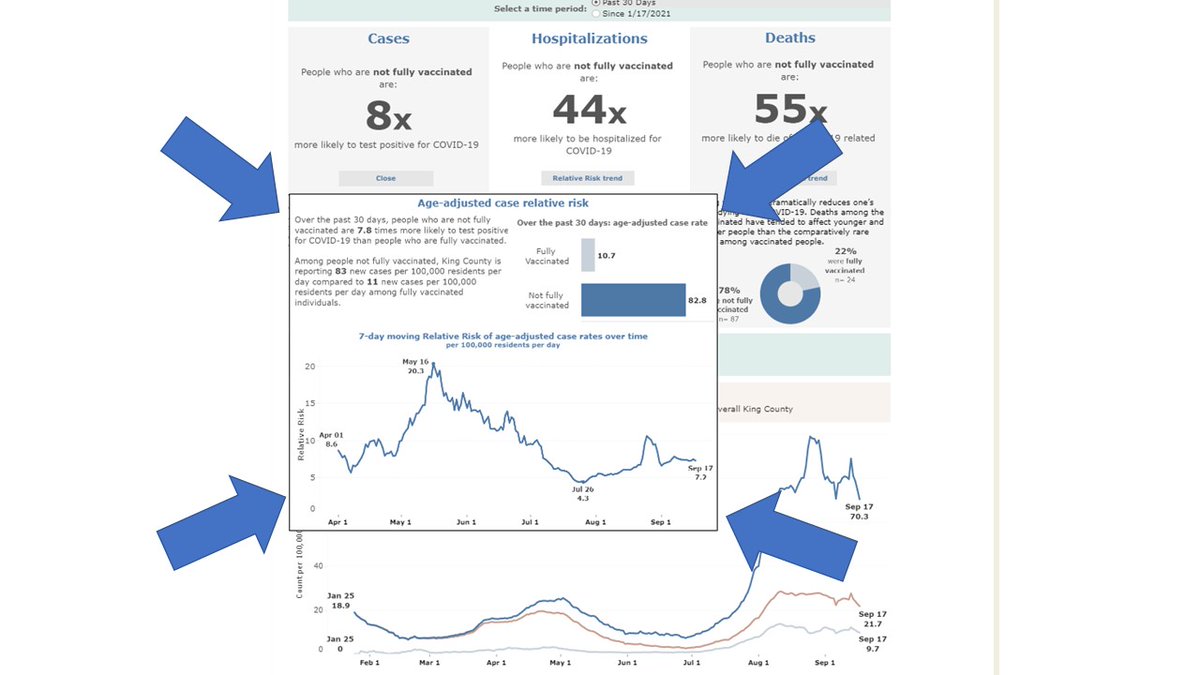
Infectious disease epidemiologist | Dad, son, friend, human being | Professor @JohnsHopkinsSPH | views my own
3 subscribers
How to get URL link on X (Twitter) App


 Gradual rise:
Gradual rise:
https://twitter.com/CDCgov/status/1497317727047925760

 Scenario A: 2022 is great.
Scenario A: 2022 is great.

 If 1 in 3 Omicron cases is reported, the # of cases in the US now is similar to # vax'd per day in April.
If 1 in 3 Omicron cases is reported, the # of cases in the US now is similar to # vax'd per day in April.

 Each wave can be explained by a combination of behavior change, winter effect, and immunity. Without invoking variants.
Each wave can be explained by a combination of behavior change, winter effect, and immunity. Without invoking variants.

 Over time, "Omicron" spreads faster, making it look more transmissible - but only bc it's spreading in a network w/ more contacts.
Over time, "Omicron" spreads faster, making it look more transmissible - but only bc it's spreading in a network w/ more contacts.

 Think of young adult travelers & their contacts as "influencers" - if they pick up Omicron, many other people will be exposed.
Think of young adult travelers & their contacts as "influencers" - if they pick up Omicron, many other people will be exposed.
 First, the bad news. Denmark. After slowing down for a bit, the virus is back to doubling every few days.
First, the bad news. Denmark. After slowing down for a bit, the virus is back to doubling every few days.

 First, Omicron is no longer doubling every few days.
First, Omicron is no longer doubling every few days.



 You may think this is really unlikely - but maybe not.
You may think this is really unlikely - but maybe not.


 Focusing on % of people reporting "brain fog" (poor attention/concentration) for >8 wks.
Focusing on % of people reporting "brain fog" (poor attention/concentration) for >8 wks.

 First: What fraction of US adults have been vax'd or infected?
First: What fraction of US adults have been vax'd or infected?



 Think of this number as "how many times more protected you are vs COVID if vax'd vs unvax'd."
Think of this number as "how many times more protected you are vs COVID if vax'd vs unvax'd."

 First, Israel. It's essential to debunk this myth:
First, Israel. It's essential to debunk this myth:



 Scenario A: Booster gives long-term benefit (by increasing immune memory), and immunity to 2-dose series continues to wane.
Scenario A: Booster gives long-term benefit (by increasing immune memory), and immunity to 2-dose series continues to wane.